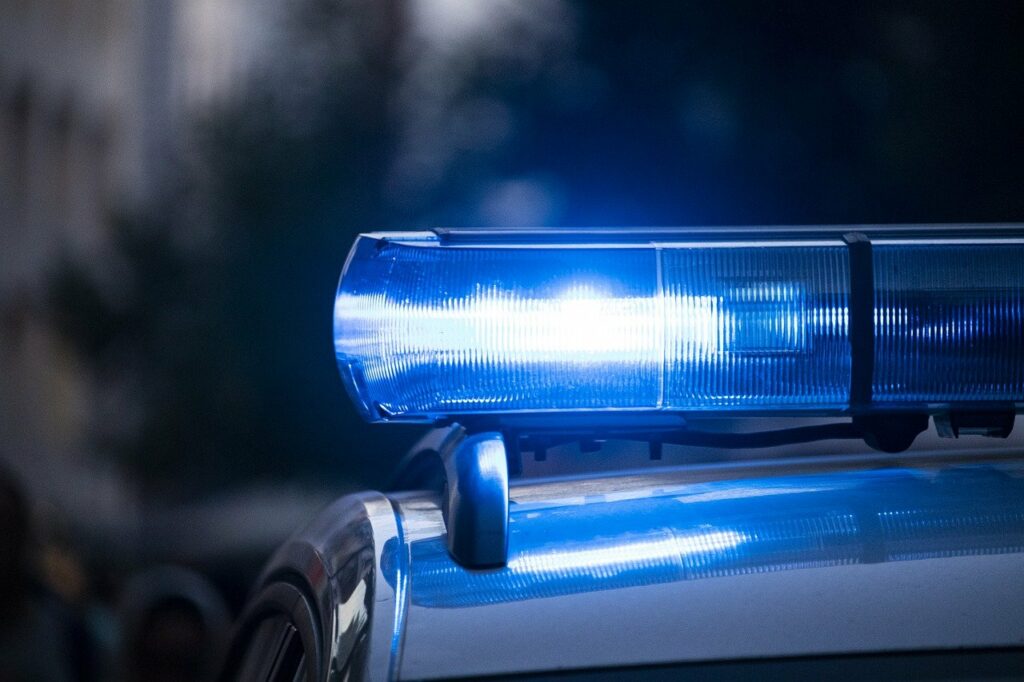It’s no secret that police will have a more active eye on drunk drivers over the holidays. In this blog post, Raleigh DWI lawyer Nick Saparilas explains what you can expect if you are pulled over for drunk driving, and offers a few tips along the way.
Tip #1: Follow all traffic laws!
 First things first, the way you drive is going to affect your ability to be stopped in the first place. The police cannot pull you over unless they have a reasonable suspicion that “criminality is afoot.” In other words, you are more likely to be stopped if you are speeding, swerving, or stopping too soon, too late, or not at all. If you are stopped by a police officer, it is important that you pull over in a safe spot as soon as possible in an orderly fashion.
First things first, the way you drive is going to affect your ability to be stopped in the first place. The police cannot pull you over unless they have a reasonable suspicion that “criminality is afoot.” In other words, you are more likely to be stopped if you are speeding, swerving, or stopping too soon, too late, or not at all. If you are stopped by a police officer, it is important that you pull over in a safe spot as soon as possible in an orderly fashion.
Tip #2: Say as little as possible.
Now, if you are pulled over by a police officer, they must have probable cause to place you under arrest. Probable cause is a higher standard than reasonable suspicion. They are looking at the totality of the circumstances. Are you fumbling for your license and registration? Are your eyes glassy and red? Is there an odor of alcohol, and if so, is it light, moderate, or strong? Are you slurring your speech? Have you admitted to drinking alcohol? When asked if you have been drinking, unless you have had nothing at all to drink, we typically recommend you respectfully decline to answer the question. In fact, say as little as possible to the officer because anything you say can become evidence if you are charged. Additionally, when communicating with the officer, it is important to speak clearly and respectfully at all times.
Tip #3: In most cases, it is probably best to not perform the field sobriety tests.
Field sobriety tests are one of the factors police officers use in determining probable cause to place you under arrest. It is important that you know your rights; you are not legally required to perform these tests! At this point, any additional information you provide will most often not be to your advantage. Most people that perform these tests do not perform them well. Being on the side of the road, the reflections of lights driving by, wind, uneven surfaces, and even the shoes you are wearing can all affect your performance. Furthermore, field sobriety tests challenge you to engage in activities you do not perform in your normal life. Regardless of whether you have had anything to drink, it is likely you will not be successful. These tests typically only serve to strengthen the case against you, so in most cases, it is probably best to not perform them in the first place.
Tip #4: Know your rights when it comes to portable breath tests.
At this point, the officer may ask you to perform a portable breath test. You are not legally required to perform this test either! It is important that you know your options so you can best determine your next course of action.
If you choose not to perform the test, the officer will have less evidence against you, but your unwillingness to do so could be admissible in court. Being arrested does not mean you will be convicted.
Tip #5: If you are arrested, say as little as possible while in the back of the car.
Getting arrested can be very upsetting. It is important to maintain your composure. Crying, cursing, or defending yourself can be misinterpreted as drunken behavior and used as evidence in your case. You are not legally obligated to answer any questions without your lawyer present. We recommend you respectfully decline to engage in conversation with the officer.
Tip #6: Remember, you are being watched and know that if you refuse to perform the breathalyzer test, you will lose your license for a year.
Once you arrive downtown, the officer asks if you would like to contact someone to observe the breathalyzer test. They will wait up to 30 minutes for this person to arrive. Additionally, there is an observation period where your behavior will continue to be monitored. After fifteen to twenty minutes of observation, you will be instructed to perform a breathalyzer test. You do not legally have to perform this test, but you will lose your license for a year if you refuse it at this point. Even during this test, if your blood alcohol registers over .08, it is possible for your Raleigh DWI lawyer to obtain limited driving privileges for you, especially if it is your first offense.
It is important to remember that every case is unique and it is always best to consult with your Raleigh DWI lawyer if you are being charged with a DWI. This holiday season and every other day of the year, your safest choice is to always have a sober driver. Drive safely, abide by all traffic laws, and if you are pulled over, remain calm, polite, and respectful while saying and doing as little as possible. We wish you and your family the happiest of holidays this season!
